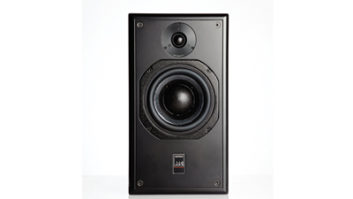
Women currently make up roughly 5 percent of the pro-audio business, if even that much. Since that depressing statistic was calculated a few years ago, organizations including the Women’s Audio Mission and the Audio Engineering Society have pushed to promote an industry that’s more welcoming for people of all backgrounds. New initiatives like the EQL Directory continue to emerge, and encouragingly, one of the most well-attended events at the recent AES Convention was the Diversity and Inclusion Committee Town Hall. These are all steps in the right direction, moving us toward a day where they become wholly unnecessary.
So it was against this backdrop of positive change that word spread earlier this fall about a new product that seemed so out of step with the times that it was a little hard to believe. On October 11 at Prolight + Sound Shanghai, Chinese manufacturer MIDIPlus introduced Mirror, an I/O designed to look like an eye shadow case—because, as the company’s website announced, it was “an audio interface specially for females.”
Other descriptions on the site only made the situation worse, with catalog copy in broken English that said Mirror would “be the new favorite of every anchor” (nice way to refer to your loved one) and appeared to imply that the company didn’t want to intimidate female users with “a formidable device,” so it made the I/O look like makeup.
Housed in a black clamshell box, the unit’s top flipped open to reveal six flat, pastel-shaded knobs and a bright LED light surrounding the titular mirror inside the lid. One look was all people needed to go off—and yes, that included Pro Sound News. On the PSN blog, we called it “culturally tone-deaf” and chided, “Clearly, acknowledging a problem [the lack of female representation in pro audio] is one thing, but reacting to it appropriately is something else entirely.”
Others got more to the point, posting full-on outrage: “It’s not a screen. It’s a mirror. A literal mirror. Because what I really look for in an audio interface … is the ability to stare at myself while I try to figure out what the f this is for. It doesn’t even have main outs,” tweeted one woman. Meanwhile, over on YouTube, commentary videos about Mirror began to appear with titles like “The Worst Audio Interface Ever Designed.”
The internet’s verdict was swift and MIDIPlus’ reaction was almost as fast: Mirror vanished from the company’s website.
And yet…something felt off. Pieces of the puzzle didn’t fit. Pro audio manufacturers have experimented with different user interfaces for years, so why was this different? Rip the lid off and paint the knobs black, and it would just be another low-end interface. Also, the mirror and bright light were such unusual but specific design choices—why? And while many assumed the I/O was invented by clueless guys—that fit the narrative perfectly—surely some women saw Mirror prior to its debut and the product came out anyway. There had to be more to the story.
There was. In mid-November, Mirror returned to the MIDIPlus website with all-new copy in clear English, extensive technical specs and a painfully sincere apology: “When our native English-speaking friends explained how our product launch had been interpreted, we were embarrassed and ashamed. We have no intention of offending anyone. We have the deepest respect for people of all genders, ages and orientation.”
The page went on to explain Mirror’s intended use: to provide children and teens with audio and lighting for “Self-K”—livestreaming self-karaoke, a popular trend on Asian social networks. When seen in context as a simplistic, familiar-looking I/O designed for a pre-teen “anchor” (as in “TV host”) with no technical interest, the pieces of the puzzle fell into place.
Inevitably some will say Mirror is still insulting; perhaps so. At one point, I would have agreed, but now I wonder if western reactions to the unit may say more about ourselves than the interface itself, making the name “Mirror” more appropriate than MIDIPlus ever imagined.





